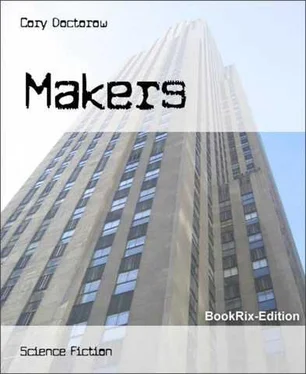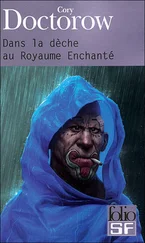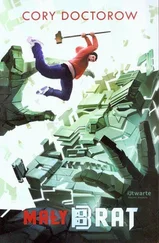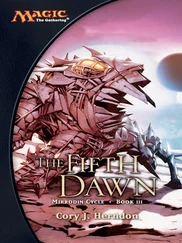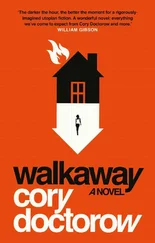Cory Doctorow - Makers
Здесь есть возможность читать онлайн «Cory Doctorow - Makers» весь текст электронной книги совершенно бесплатно (целиком полную версию без сокращений). В некоторых случаях можно слушать аудио, скачать через торрент в формате fb2 и присутствует краткое содержание. Жанр: Фантастика и фэнтези, на английском языке. Описание произведения, (предисловие) а так же отзывы посетителей доступны на портале библиотеки ЛибКат.
- Название:Makers
- Автор:
- Жанр:
- Год:неизвестен
- ISBN:нет данных
- Рейтинг книги:4 / 5. Голосов: 1
-
Избранное:Добавить в избранное
- Отзывы:
-
Ваша оценка:
- 80
- 1
- 2
- 3
- 4
- 5
Makers: краткое содержание, описание и аннотация
Предлагаем к чтению аннотацию, описание, краткое содержание или предисловие (зависит от того, что написал сам автор книги «Makers»). Если вы не нашли необходимую информацию о книге — напишите в комментариях, мы постараемся отыскать её.
Makers — читать онлайн бесплатно полную книгу (весь текст) целиком
Ниже представлен текст книги, разбитый по страницам. Система сохранения места последней прочитанной страницы, позволяет с удобством читать онлайн бесплатно книгу «Makers», без необходимости каждый раз заново искать на чём Вы остановились. Поставьте закладку, и сможете в любой момент перейти на страницу, на которой закончили чтение.
Интервал:
Закладка:
Suzanne shuddered.
Ambulance sirens in the distance. Lester stroked Perry’s hair. Suzanne took a step back and panned it over Perry’s ruined face, bloody and swollen. The rubber bullet must have taken him either right in the eye or just over it.
“Perry Mason Gibbons was unarmed and posed no threat to Sheriff’s Deputy Badge Number 5724 — ” she zoomed in on it — “when he was shot with a rubber bullet in the eye. He is unconscious and bloody on the ground in front of the workshop where he has worked quietly and unassumingly to invent and manufacture new technologies.”
The cop knew when to cut his losses. He turned aside and walked back into the shantytown, leaving Suzanne to turn her camera on Perry, on the EMTs who evacced him to the ambulance, on the three injured shantytowners who were on the ambulance with him, on the corpse they wheeled out on his own gurney, one of the newcomers to the shantytown, a man she didn’t recognize.
They operated on Perry all that night, gingerly tweezing fragments of bone from his shattered left orbit out of his eye and face. Some had floated to the back of the socket and posed a special risk of brain damage, the doctor explained into her camera.
Lester was a rock, sitting silently in the waiting room, talking calmly and firmly with the cops and over the phone to Kettlewell and the specially impaneled board-room full of Kodacell lawyers who wanted to micromanage this. Rat-Toothed Freddy filed a column in which he called her a “grandstanding bint,” and accused Kodacell of harboring dangerous fugitives. He’d dug up the fact that one of the newcomers to the shantytown — not the one they’d killed, that was a bystander — was wanted for holding up a liquor-store with a corkscrew the year before.
Lester unscrewed his earphone and scrubbed at his eyes. Impulsively, she leaned over and gave him a hug. He stiffened up at first but then relaxed and enfolded her in his huge, warm arms. She could barely make her arms meet around his broad, soft back — it was like hugging a giant loaf of bread. She squeezed tighter and he did too. He was a good hugger.
“You holding in there, kiddo?” she said.
“Yeah,” he murmured into her neck. “No.” He squeezed tighter. “As well as I need to, anyway.”
The doctor pried them apart to tell them that the EEG and fMRI were both negative for any brain-damage, and that they’d managed to salvage the eye, probably. Kodacell was springing for all the care he needed, cash money, no dorking around with the fucking HMO, so the doctors had put him through every machine on the premises in a series of farcically expensive tests.
“I hope they sue the cops for the costs,” the doctor said. She was Pakistani or Bangladeshi, with a faint accent, and very pretty even with the dark circles under her eyes. “I read your columns,” she said, shaking Suzanne’s hand. “I admire the work you do,” she said, shaking Lester’s hand. “I was born in Delhi. We were squatters who were given a deed to our home and then evicted because we couldn’t pay the taxes. We had to build again, in the rains, outside of the city, and then again when we were evicted again.”
She had two brothers who were working for startups like Kodacell’s, but run by other firms: one was backed by McDonald’s, the other by the AFL–CIO’s investment arm. Suzanne did a little interview with her about her brothers’ projects — a bike-helmet that had been algorithmically evolved for minimum weight and maximum protection; a smart skylight that deformed itself to follow light based on simple phototropic controllers. The brother working on bike-helmets was riding a tiger and could barely keep up with orders; he was consuming about half of the operational capacity of the McDonald’s network and climbing fast.
Lester joined in, digging on the details. He’d been following the skylights in blogs and on a list or two, and he’d heard of the doctor’s brother, which really tweaked her, she was visibly proud of her family.
“But your work is most important. Things for the homeless. We get them in here sometimes, hurt, off the ambulances. We usually turn them away again. The ones who sell off the highway medians and at the traffic lights.” Suzanne had seen them, selling homemade cookies, oranges, flowers, newspapers, plasticky toys, sad or beautiful handicrafts. She had a carved coconut covered in intricate scrimshaw that she’d bought from a little girl who was all skin and bones except for her malnourished pot-belly.
“They get hit by cars?”
“Yes,” the doctor said. “Deliberately, too. Or beaten up.”
Perry was moved out of the operating theater to a recovery room and then to a private room and by then they were ready to collapse, though there was so much email in response to her posts that she ended up pounding on her computer’s keyboard all the way home as Lester drove them, squeezing the bridge of his nose to stay awake. She didn’t even take her clothes off before collapsing into bed.
“They need the tools to make any other tools,” is what Perry said when he returned from the hospital, the side of his head still swaddled in bandages that draped over his injured eye. They’d shaved his head at his insistence, saying that he wasn’t going to try to keep his hair clean with all the bandages. It made him look younger, and his fine skull-bones stood out through his thin scalp when he finally came home. Before he’d looked like a outdoorsman engineer: now he looked like a radical, a pirate.
“They need the tools that will let them build anything else, for free, and use it or sell it.” He gestured at the rapid prototyping machines they had, the three-d printer and scanner setups. “I mean something like that, but I want it to be capable of printing out the parts necessary to assemble another one. Machines that can reproduce themselves.”
Francis shifted in his seat. “What are they supposed to do with those?”
“Everything,” Perry said, his eye glinting. “Make your kitchen fixtures. Make your shoes and hat. Make your kids’ toys — if it’s in the stores, it should be a downloadable too. Make toolchests and tools. Make it and build it and sell it. Make other printers and sell them. Make machines that make the goop we feed into the printers. Teach a man to fish, Francis, teach a man to fucking fish. No top-down ’solutions’ driven by ’market research’” — his finger-quotes oozed sarcasm — “the thing that we need to do is make these people the authors of their own destiny.”
They put up the sign that night: AUTHOR OF YOUR OWN DESTINY, hung over the workshop door. Suzanne trailed after Perry transcribing the rants that spilled out of his mouth as he explained it to Lester and Francis, and then to Kettlewell when he called, and then to the pretty young black lady from the TV who by now had figured out that there was a real story in her backyard, then to an NPR man on the phone, and then to a CNN crew who drove in from Miami and filmed the shantytown and the workshop like Japanese tourists at Disney World, never having ventured into the skanky, failed strip-mall suburbs just outside of town.
Francis had a protege who had a real dab touch with the 3-D printers. The manufacturer, Lester’s former employer, had been out of business for two years by then, so all the service on the machines had to be done on the premises. Francis’s protege — the one who claimed his mother had pushed his father under a bus, his name was Jason — watched Lester work on recalcitrant machines silently for a couple days, then started to hand him the tool he needed next without having to be asked. Then he diagnosed a problem that had stumped Lester all morning. Then he suggested an improvement to the feedstock pump that increased the mean time between failures by a couple hours.
Читать дальшеИнтервал:
Закладка:
Похожие книги на «Makers»
Представляем Вашему вниманию похожие книги на «Makers» списком для выбора. Мы отобрали схожую по названию и смыслу литературу в надежде предоставить читателям больше вариантов отыскать новые, интересные, ещё непрочитанные произведения.
Обсуждение, отзывы о книге «Makers» и просто собственные мнения читателей. Оставьте ваши комментарии, напишите, что Вы думаете о произведении, его смысле или главных героях. Укажите что конкретно понравилось, а что нет, и почему Вы так считаете.
